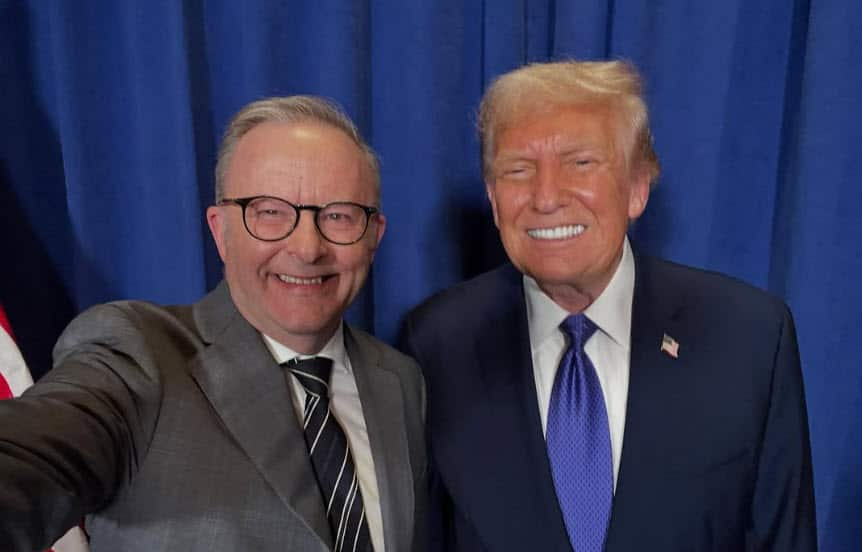Prime Minister Anthony Albanese has called for reform of the United Nations to meet "old and new" global challenges as he addressed the General Assembly for the first time.
He used the global platform to bid for Australia to have a seat on the UN Security Council, while outlining his broad foreign policy agenda for regional security and climate action.
"The United Nations is much more than an arena for the great powers to veto each other's ambitions," he said in his first leader's address to the UN.
"This is a platform for middle powers and small nations to voice — and achieve — our aspirations. That is why Australia is seeking a place on the UN Security Council in 2029-30."
Australia first held a temporary seat on the UN Security Council in 1946, with its most recent term in 2013-2014.
Reviving a bid originally launched by the Turnbull government in 2015, Albanese said Australia was "ready to play its part" in reforming the body and making it stronger, if it was elected to a sixth term.
The Security Council has five permanent members: China, France, Russia, the United Kingdom, and the United States.
The ten countries elected on a two-year term basis are Algeria, Denmark, Greece, Guyana, Pakistan, Panama, South Korea, Sierra Leone, Slovenia and Somalia.
UN risks 'losing trust' PM says, calling out Iran
Albanese urged unity among the UN members to meet global challenges of climate change as well as an end to wars in Gaza and Ukraine, or risk losing public trust.
"If we resign ourselves to the idea that war is inevitable, or relegate ourselves to the status of disinterested bystanders," he said.
"If our only response to every crisis is to insist that there is nothing we can do, then we risk being trusted with nothing."
He highlighted the expulsion of Iran's ambassador to Australia for the first time since World War Two to illustrate the need for strength in the face of "cowardice, aimed at spreading fear".
The call came after security agencies found Iran directed two antisemitic attacks in Australia, including the firebombing of the Adass Israel synagogue in Melbourne last December.
"We expelled the Iranian ambassador from Australia," Albanese said.
"And here at the United Nations, we repeat to the world, there is no place for antisemitism."
He has painted a picture of a highly unstable global environment, urging nations to act cooperatively to act against dictators, tyrants, oppressive regimes and autocracies.
"And if ever we had the luxury of imagining that breaches of international law were not our concern, or that conflict and turmoil in another part of the world could not affect us, those days are long gone," he said.
In contrast to his US President Donald Trump, who this week called climate change "the greatest con job ever perpetrated on the world", Albanese labelled it an "existential threat".

Hours after welcoming China's first emissions reduction target of 7 to 10 per cent by 2035, Albanese reaffirmed his government's commitment to a 2035 target for reducing carbon emissions by 62 to 70 per cent, first announced last week.
PM reaffirms calls for Gaza ceasefire
Albanese has also highlighted his government's decision to recognise Palestinian statehood, joining the leaders of the UK, France, Canada and Portugal in calling it a sovereign state earlier this week.
The prime minister reaffirmed Australia's calls for a ceasefire, flow of aid into Gaza, immediate release of Israeli hostages taken by militant group Hamas on 7 October 2023, as well as the absence of Hamas in the future of the state.
"We are determined, 'to save succeeding generations from the scourge of war'... 'and live together in peace with one another as good neighbours'," Albanese said, quoting the UN charter Australia helped draft 80 years ago.
For the latest from SBS News, download our app and subscribe to our newsletter.

